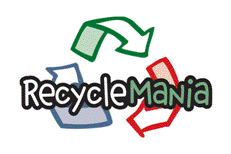NEW BRUNSWICK, N.J. – Not content to rest on its laurels, for the second straight year in only its third year competing, Rutgers captured the “Gorilla Prize” in RecycleMania 2008, an annual friendly competition among 400 college and university recycling programs from 46 states and the District of Columbia, to reduce waste and promote recycling on their campuses. Rutgers collected more than 2.7 million pounds of recyclables during the 10-week contest that ended April 5. Results were announced today, and lunchtime celebrations are scheduled April 25 at all campus dining halls and student centers.

“Rutgers has longstanding traditions of excellence in academics, athletics and in service to our state and nation,” said President Richard L. McCormick. “It’s natural for us to display leadership in environmental awareness, to develop and utilize technology and to create and implement programs for the betterment of our community, New Jersey and beyond.”
Rutgers is no stranger to collecting honors for its green programs conceived and implemented by environmentally conscious students, faculty, staff and administrators. The federal Environmental Protection Agency (EPA) named Rutgers “WasteWise Partner of the Year for 2007” for its food organics recycling, traditional recycling efforts and Chemical Reclamation Program.
During the 2007 reporting period, the university’s waste prevention initiatives resulted in more than 15,800 tons of material that was either recycled or reused, an 11 percent increase over 2006. As a result, Rutgers avoided almost $840,000 in landfill costs, an increased savings of more than $75,000 from 2006.
Rutgers is also committed to purchasing products with recycled contents. For example, all carpeting purchased must contain 25 percent recycled material, and all carpeting removed must be recycled. Rutgers purchases 30 percent recycled content paper and ceiling tiles with 25 percent recycled content.
The New Jersey Department of Environmental Protection (DEP) recognized the university with its 2007 Clean Water New Jersey Award for outstanding contributions to improving the state’s water quality though participation in a local public education program.
Rutgers Environmental Health and Safety (REHS) prepares and distributes a quarterly newsletter to the university community with information on the Clean Water Act (CWA) and the school’s Stormwater Pollution Prevention Program. REHS holds contests and giveaways during the annual Ag Field Day at the George H. Cook Campus, and maintains a Web page that explains the CWA and links to university and DEP resources, among other activities.
The university received a 2007 Award of Merit from the Campus Safety, Health and Environmental Management Association for its comprehensive Environmental, Health and Safety Program.
Rutgers also was a co-winner with Cornell University of MTV’s Break the Addiction Final Exam, which challenged college student groups across the country to submit evidence of educational activities and policy advocacy to reduce their school’s global warming pollution. Each university won up to $10,000 from MTV for the eco-renovation of a student center.
Rutgers’ NJPIRG (New Jersey Public Interest Research Group) will work with the Department of Environmental Services and Grounds on the project.
“These awards reaffirm our strong commitment to environmental awareness, education, and best practices,” said Dianne Gravatt, director of Environmental Services and Grounds. “We have emphasized ‘green’ purchasing for years, especially green cleaning materials, and our 275 custodians do a great job following procedures after training, many in languages other than English.
“We also recycle trees and every few years we have staged a Tree Day,” Gravatt said. “An association of arborists comes to the George H. Cook Campus for demonstrations for our landscape students, faculty and staff. They volunteer their services at a tremendous discount and then the trees are milled into usable lumber, mulch or firewood.”
Rutgers has a culture of recycling, Gravatt noted. “Waste Management donated recycling containers for use at the football stadium, where we recycled about 30 tons of garbage during this past season,” she said. “Two public address announcements are made during every football and basketball game, reminding fans to recycle. These messages are also are flashed on scoreboards.
“Our dorms are doing a much better job recycling than in the past, and Dining Services’ Organics Recycling Program is the poster child for the EPA,” Gravatt concluded. “We’re a model for other large institutional groups with food and organic wastes, as evidenced by our showing in RecycleMania.”
Media Contact: Dianne Gravatt
732-445-3711, Ext. 186
E-mail: dgravatt@facilities.rutgers.edu